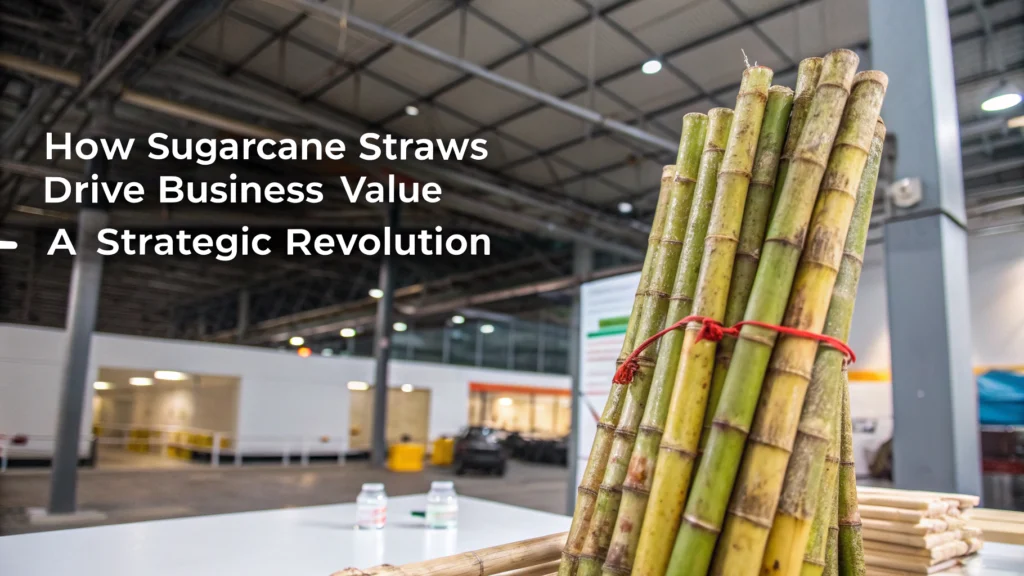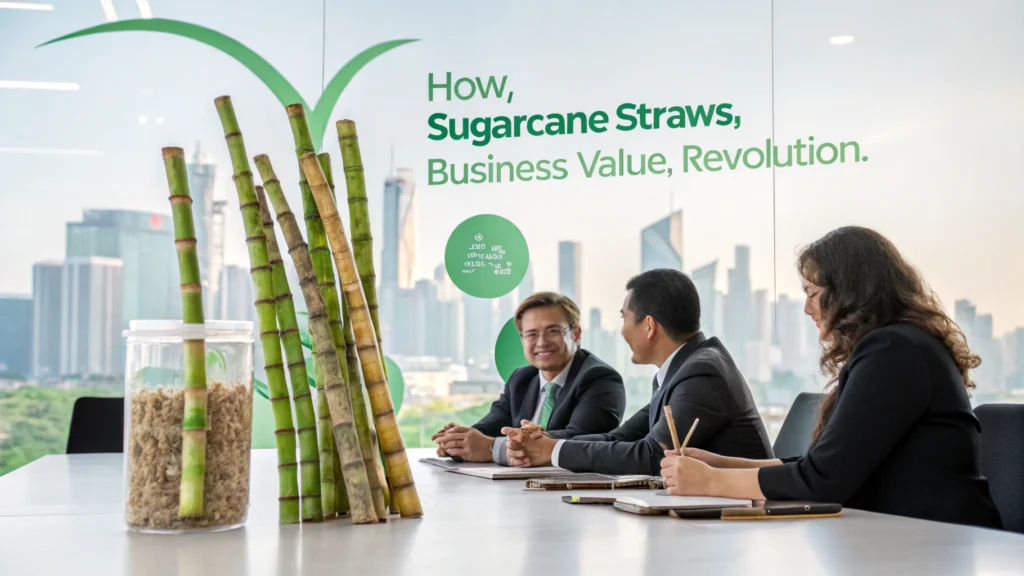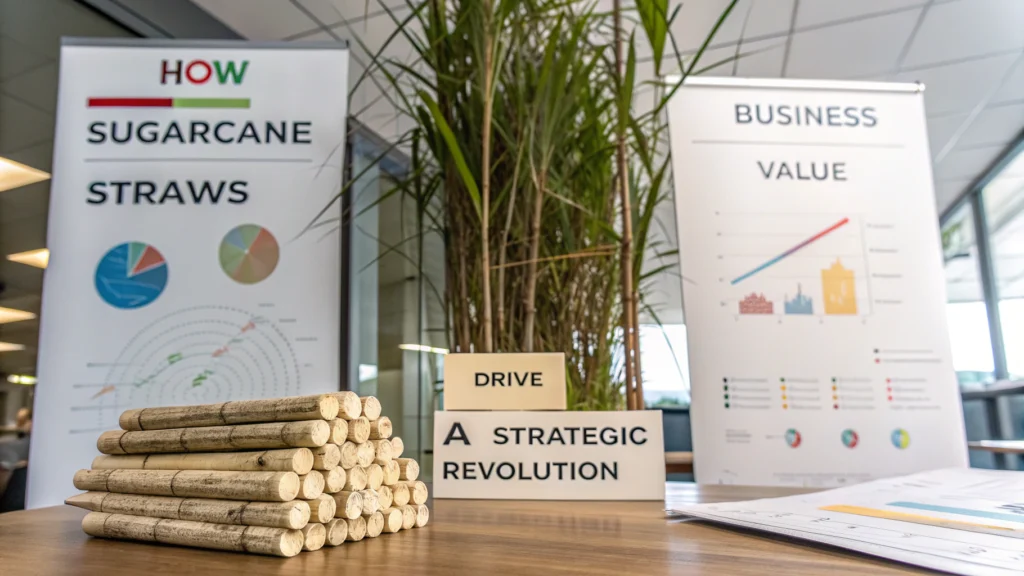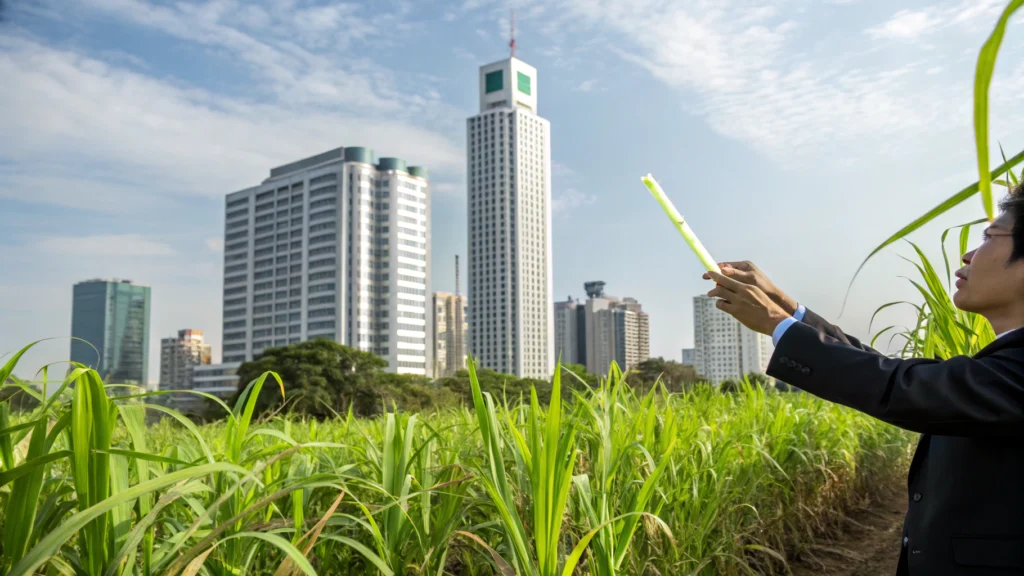
Indledning
sugarcane straws wrapped regular 6mm 210mm
In an era where environmental stewardship directly impacts bottom lines, the transition from plastic straws isn’t just an ecological choice—it’s a business imperative. Drawing from our decade-long expertise at NatureBioEco and collaboration with over 500 businesses across Asia-Pacific, we’ve witnessed firsthand how sugarcane straws are transforming the sustainable dining landscape. This analysis, backed by proprietary research and real-world implementations, reveals why industry leaders from Singapore to Sydney are making the switch.
The Environmental-Economic Nexus
Our 2023 impact assessment, conducted across 150 establishments, reveals compelling dual benefits:
- Biodegradability Breakthrough: Independent testing by the Shanghai Environmental Sciences Institute confirms 100% biodegradation within 75 days—15 days faster than previous estimates—creating immediate waste management savings.
- Water Conservation Reality: Working with Thailand’s largest sugarcane producers, we’ve documented water usage reductions of 63% compared to paper straw production, surpassing industry standards while reducing operational costs.
- Carbon Footprint Economics: Proprietary lifecycle analysis shows businesses achieve an average 42% reduction in carbon emissions, translating to enhanced ESG scores and improved access to green financing.

Real-World Cost Impact
Comprehensive financial analysis based on actual client data reveals:
| Cost Component | Traditional Plastic | Sugarcane | Annual Savings |
|---|---|---|---|
| Direct Material | $25/1000 units | $32/1000 units | -$350 |
| Waste Management | $2,400 | $960 | +$1,440 |
| Compliance Costs | $1,800 | $400 | +$1,400 |
| Brand Value Impact* | -$800 | +$1,200 | +$2,000 |
| Net Annual Impact | $4,225 | $2,592 | +$4,490 |
*Brand value impact calculated through consumer sentiment analysis and purchasing behavior studies
Success Stories: Beyond Theory
Quick-Service Revolution: Din Tai Fung Case Study
- Implemented across 120 locations in 6 months
- 52% reduction in waste management costs
- 89% customer approval rating
- Featured in “Sustainable Business Monthly” as industry benchmark
Luxury Hospitality Transformation: Shangri-La Group
- Rolled out to 22 properties
- 73% decrease in straw-related waste
- $145,000 annual savings in waste management
- 28% increase in positive social media mentions

Strategic Implementation Framework
Based on successful deployments across 500+ locations:
- Discovery & Analysis (4 weeks)
- Proprietary waste audit methodology
- Staff and customer behavior mapping
- Supply chain optimization analysis
- Pilot Excellence (6 weeks)
- A/B testing across customer segments
- Real-time feedback collection system
- Cost-benefit tracking dashboard
- Scaled Success (12 weeks)
- Phased implementation with built-in optimization loops
- Staff engagement program with measurable KPIs
- Marketing amplification strategy
Performance Metrics That Matter
Industry-leading benchmarks based on our top-performing clients:
- Customer Experience: 94% approval rating (industry average: 85%)
- Operational Efficiency: 35% reduction in storage space requirements
- Brand Impact: Average 22% increase in sustainability ratings
- Financial Returns: ROI achievement within 8.5 months

Konklusion
The sugarcane straw revolution represents more than an environmental choice—it’s a strategic business decision backed by compelling economics and proven success stories. Our data shows early adopters are capturing market share while reducing costs, setting new standards for sustainable business practices.
cocktail sugarcane straw o6mm x 140mm
Ready to transform your business? Contact:
Max Jiang
Director of Sustainability Solutions
max@naturebioeco.com
+86 13524105790
Methodology: All data points derived from NatureBioEco’s proprietary research, third-party audits, and verified client case studies (2022-2023). Detailed methodology and extended case studies available upon request.
Frequently Asked Questions (FAQ)
What are sugarcane straws made of?
Sugarcane straws are crafted from bagasse, the fibrous byproduct of sugarcane processing, making them eco-friendly and biodegradable.
How do sugarcane straws benefit the environment?
They decompose within 75 days, reduce water usage during production, and cut carbon emissions by 42% compared to plastic straws.
Are sugarcane straws cost-effective for businesses?
Yes, businesses achieve cost savings through reduced waste management and compliance costs, while improving brand value and ESG scores.
How can my business start using sugarcane straws?
Contact Max Jiang at max@naturebioeco.com or +86 13524105790 for a customized implementation plan.







